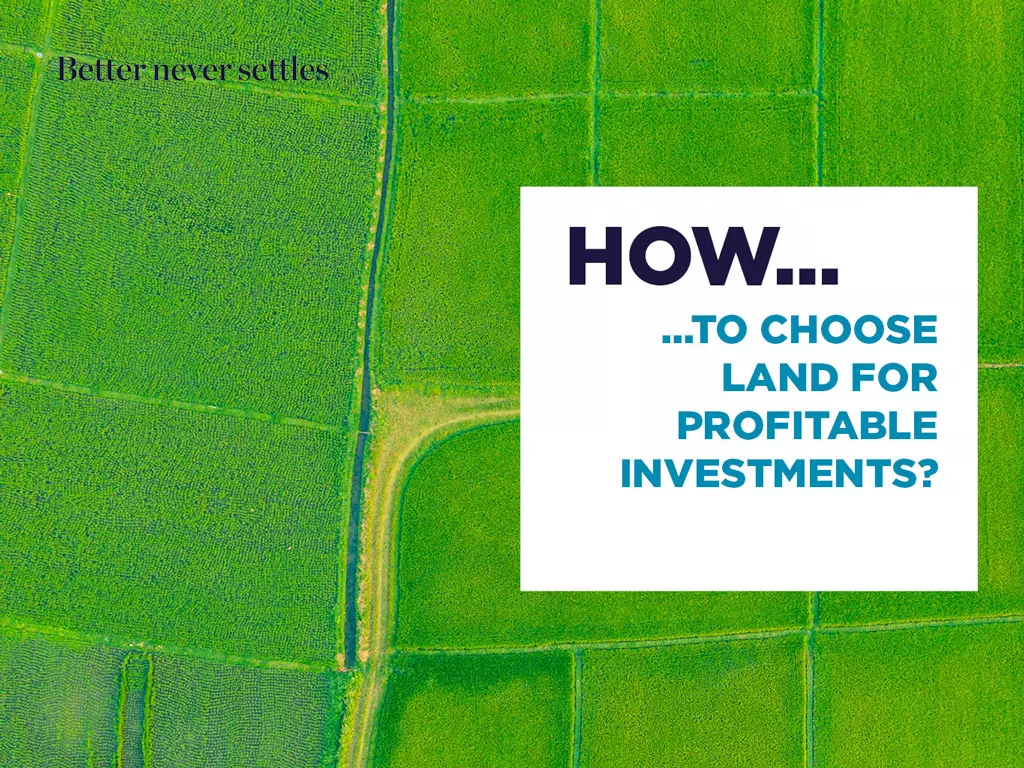How to Choose Investment Land? 5 Tips
17 july 2024

Contents
What is Investment Land?
Investment land refers to properties that have a high potential for value appreciation. Investors can profit from them by developing various projects or reselling them at a higher price in the future. In recent years, there has been a significant increase in land prices, driven by the growing demand for residential and commercial investments. Particularly in large cities, there is a limited supply of land in attractive locations, which further boosts their value.
This growth is especially noticeable in the logistics, warehousing, and residential construction sectors, where attractive locations are highly sought after. Investment land attracts the attention of both large companies and individual investors looking for profitable capital placement opportunities. These lands are valued for their development potential and ability to generate high returns in the future.
Investment land can be divided into several main categories, depending on their location and potential uses. In this article, we will focus on the industrial, warehousing, and logistics sectors, where a convenient location is crucial. These lands must be located in strategic areas, close to major transport routes, which increases their attractiveness and potential value. A characteristic feature of industrial investment land is that residential buildings cannot be constructed on them.
5 Factors to Consider When Choosing Investment Land
1. Analysis of Land Location
Location, location, location. This is probably the most important factor to consider. Lands situated in strategic areas, close to major communication arteries and in the right neighborhood, have significantly higher potential for value appreciation. A convenient location also means optimizing transportation costs and access to the workforce. Investment lands located closer to cities can also be attractive to potential buyers, but in such locations, it's essential to carefully analyze the neighborhood and the area's development directions (administrative procedure challenges). When analyzing the location, one should also check the availability of infrastructure, including roads, public transportation, and public and commercial services.
2. Analysis of Investment Return Potential
Do not limit yourself to the current situation, but anticipate what will come next. This can be aided by demographic, economic, or market analyses. The analysis of the investment potential of a given area should consider market trends, the number of similar objects in the vicinity, and the vacancy rate. It is also worth looking into spatial development plans to find out what activities are planned in the region in the near future. This will help better predict which types of properties will be most needed.
3. Assessment of Legal, Technical, and Environmental Conditions
Every investment land should be thoroughly checked for its legal status, encumbrances, and usability according to the local spatial development plan. Before finalizing the purchase, it is necessary to check the conditions on the site, access to public roads, utilities, and also recognize any environmental conditions that may lead to significant project delays in the future or even its invalidation.
4. Investment Risk Assessment
High returns can be achieved if the investor accurately assesses the development potential of a given area and decides to invest at the right time. Before making an investment decision, it is worth conducting detailed financial analyses to assess the profitability of the investment. Costs of land purchase, possible works related to its transformation or development, and the expected income from its sale or rental should be considered.
5. Professional Support
Investing in investment land, though potentially profitable, requires a deep understanding of the real estate market, knowledge of the legal aspects of land purchase and development, and market analysis skills. Therefore, it is sometimes worth entrusting at least some of the tasks to specialists.
Operate in the Investment Land Market with Proper Preparation!
Investing in land has long enjoyed steady interest from both large institutional investors and private individuals. These lands, offering potentially high returns, can be a component of a diversified investment portfolio. However, remember our tips before you start investing.
As advisors with relevant experience in the investment land industry, we provide assistance in identifying the most prospective locations and leverage technical knowledge in assessing the suitability of land for industrial, warehousing, and logistics investments. We specialize in advising on the sale of investment land, provide valuable market information, and find offers that best match the client's profile.


